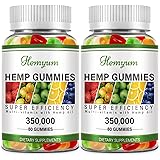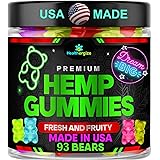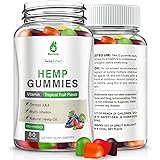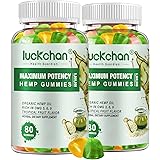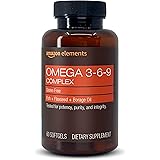The Profound Impact: Unraveling the Brain Health Dilemma of Marijuana vs. Alcohol
As Dr. Daniel Amen insightfully discusses in the accompanying video, the perennial debate regarding which substance—marijuana or alcohol—poses a greater threat to human health is a question frequently asked. Both substances are widely consumed, yet their long-term neurological and systemic impacts remain subjects of intense scientific scrutiny. While popular perception might often gravitate towards one or the other, clinical evidence, particularly from extensive neuroimaging studies, paints a more complex and often surprising picture.
Dr. Amen explicitly states that neither marijuana nor alcohol is beneficial for your health, a critical baseline for this complex discussion. He also highlights the devastating societal consequences of alcohol, detailing the higher incidence of deaths, domestic violence, drunk driving incidents, and legal entanglements attributed to its use annually. However, the brain’s delicate architecture tells a different story concerning direct cellular damage and accelerated aging, a finding that merits expert-level investigation.
Unpacking the SPECT Scan Study: A Quantitative Look at Brain Aging
The Amen Clinics’ groundbreaking brain imaging study provides invaluable data, illuminating the direct effects of these substances on cerebral health. This extensive research effort involved the evaluation of 62,454 single-photon emission computed tomography (SPECT) scans. SPECT technology offers a unique window into brain activity, revealing blood flow and metabolic patterns that correlate with neuronal health and function.
Researchers meticulously analyzed how the brain ages over time, identifying factors that contribute to accelerated neurological decline. The findings were stark and unequivocal: both marijuana and alcohol significantly accelerate brain aging. This means that individuals who consume these substances exhibit brain characteristics typical of an older chronological age, indicating compromised cognitive resilience and structural integrity. Intriguingly, within the specific parameters of this comprehensive study, marijuana demonstrated a more pronounced deleterious effect on the brain’s aging process compared to alcohol.
Mechanisms of Neurotoxicity: How Substances Accelerate Brain Decline
Understanding the mechanisms through which marijuana and alcohol impact brain aging requires delving into their respective neurochemical pathways. Alcohol, primarily ethanol, exerts broad neurotoxic effects across various brain regions. It disrupts neurotransmitter systems, particularly GABA and glutamate, leading to acute intoxication and chronic neuronal damage. Imagine if your brain’s communication network suffered constant interference, making efficient signal transmission increasingly difficult; this illustrates alcohol’s insidious impact.
Chronic alcohol consumption is associated with decreased gray matter volume, particularly in the frontal lobes which govern executive functions like decision-making and impulse control. It also impairs the hippocampus, a crucial region for memory formation, explaining the memory deficits often observed in heavy drinkers. The cumulative oxidative stress and inflammatory responses triggered by alcohol metabolism further contribute to the accelerated cellular senescence and neuronal atrophy observed in brain aging.
Alcohol’s Pervasive Societal Impact: Beyond Brain Imaging
While neuroimaging provides critical insights into the brain’s physical state, alcohol’s overall impact extends far beyond the confines of individual neural networks. Dr. Amen’s observation that alcohol contributes to more deaths, domestic violence, and drunk driving accidents annually is a stark public health reality. The social fabric is demonstrably strained by alcohol-related incidents, leading to profound human suffering and significant economic burden.
The disinhibitory effects of alcohol frequently contribute to poor judgment and aggressive behaviors, escalating conflicts within households and communities. Furthermore, the sheer volume of alcohol-related motor vehicle fatalities underscores its devastating potential in public safety contexts. These macroscopic societal consequences, though not directly visible on a SPECT scan, represent a critical dimension in the comprehensive assessment of alcohol’s harm, influencing policy and public health initiatives globally.
Understanding Marijuana’s Nuanced Effects on Brain Architecture
Marijuana’s primary psychoactive component, delta-9-tetrahydrocannabinol (THC), interacts with the endocannabinoid system, a complex network of receptors involved in regulating mood, memory, appetite, and pain sensation. While short-term effects can include altered perception and relaxation, long-term use, especially during adolescence, has been linked to structural and functional changes in the brain.
Research indicates that chronic marijuana use may lead to reductions in gray matter volume in regions like the prefrontal cortex, which is vital for planning, problem-solving, and emotional regulation. It can also affect white matter integrity, impairing the brain’s neural connectivity and efficiency. Imagine if the high-speed data cables in a supercomputer started to fray, significantly slowing down processing; this parallels the impact of marijuana on crucial brain pathways. The SPECT study’s finding that marijuana accelerated brain aging more than alcohol suggests a distinct, perhaps more direct, pathway of neurological compromise regarding cellular longevity and metabolic efficiency.
Cognitive Function and Long-Term Consequences
The acceleration of brain aging by both marijuana and alcohol carries significant implications for long-term cognitive function. An older biological brain age directly correlates with a heightened risk of developing various neurocognitive disorders, including dementia and Alzheimer’s disease. Persistent exposure to neurotoxins, such as those present in alcohol and cannabis, can deplete neuronal reserves, making the brain more vulnerable to age-related decline and environmental stressors.
Individuals exhibiting accelerated brain aging may experience earlier onset of memory issues, reduced processing speed, and diminished executive function. This premature cognitive erosion impacts career longevity, personal independence, and overall quality of life. The brain’s neuroplasticity, its ability to adapt and reorganize, becomes compromised, further hindering recovery and resilience in the face of ongoing challenges. Understanding the profound impact of marijuana or alcohol on the brain’s delicate aging process is paramount for public health.
Towards Informed Decisions for Optimal Brain Health
The scientific evidence, particularly from large-scale neuroimaging studies like the one mentioned by Dr. Amen, unequivocally demonstrates that both marijuana and alcohol present substantial risks to long-term brain health. The finding that both accelerate brain aging, with marijuana potentially having a more pronounced effect in this specific context, challenges many preconceived notions. Individuals must consider these expert findings when making personal choices about substance use.
Prioritizing cognitive longevity and overall well-being necessitates a critical evaluation of these substances’ pervasive effects. Informed decisions about marijuana or alcohol consumption should be grounded in scientific understanding, acknowledging the distinct yet equally concerning impacts each has on the brain and broader society. Cultivating a lifestyle that actively supports brain health, free from substances that demonstrably accelerate its aging, represents a proactive step towards preserving cognitive vitality.
Settling the Score: Your Q&A on Marijuana vs. Alcohol
What is the main message about marijuana and alcohol in this article?
The article explains that both marijuana and alcohol pose significant risks to human health, especially brain health, and neither is considered beneficial.
How did scientists study the effects of these substances on the brain?
Scientists used a special brain imaging technique called SPECT scans, which allow them to see blood flow and activity patterns in the brain.
What did the brain imaging study reveal about marijuana and alcohol?
The study found that both marijuana and alcohol significantly speed up brain aging, meaning the brains of people who use them can appear older than their actual age.
Which substance had a more pronounced effect on brain aging in the study?
In the specific SPECT scan study mentioned, marijuana was found to have a more pronounced negative effect on the brain’s aging process compared to alcohol.




